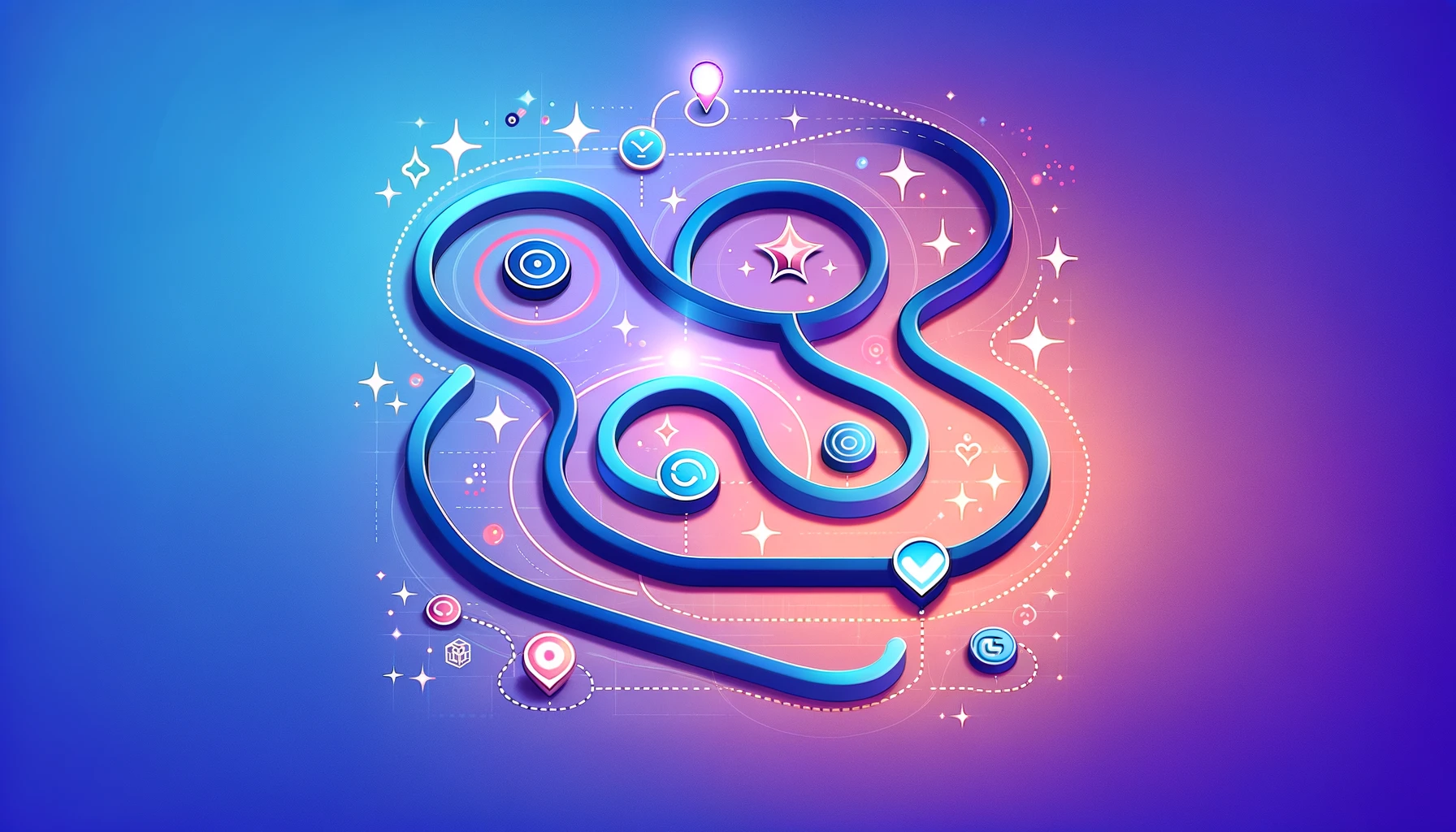Email Framework #1: AIDA Model

Attention. Interest. Desire. Action… Used correctly, the AIDA model can help you target your messaging for better results. Here’s how 👇
In literature, music, and cinema, classics are synonymous with quality. They might not be the hippest or trendiest item of the day, but they still merit their fair share of attention.
The same holds true for the AIDA framework.
The AIDA framework is a simple, easy-to-grasp formula that can help you reach and convert your leads in just four steps:
- Attention
- Interest
- Desire
- Action
Here’s a closer look at how you can apply the AIDA model to your business, as well as some of its limitations.
What is the AIDA framework?
Similar to the ACCA model, AIDA breaks down the customer journey into four distinct stages: Attention, Interest, Desire, and Action.
In marketing and sales, you can use the AIDA framework to help tailor your messaging to fit the journey stage where your leads are at. For instance, you might ask yourself these questions for each step:
- Attention – Does your message grab the attention of your target audience?
- Interest – Does your message make customers want to learn more about your solution?
- Desire – Does your message make customers want to buy your solution?
- Action – Does your message outline the next step for making a purchase?
This sounds pretty simple in theory, but in practice, it takes creativity and data-driven decision-making to create and send effective messages for each stage.
Let’s take a look at how some of the best digital marketing practices can help.
Attention stage
At this stage, your task as a marketer is to ensure your content stands out from the flood of information your leads consume every day. Your content should make a lead linger for at least a few seconds to ask “What’s this?”
Common tactics for grabbing attention include:
- Addressing lead pain points
- Using humor
- Piquing curiosity
- Using striking visuals
As a rule of thumb, you should use one tactic per message.
You might use a subject line that highlights a pain point or important job. In a later email, you might include a funny TikTok or Instagram reel that earns a laugh.
Ultimately, your message should find some way to get a person’s attention and get them to open your email.
Interest stage
Now that you’ve got someone’s attention, your next step is to hold it.
If your customer decides your product isn’t appealing, they’ll scroll to the next reel or close your email despite the intriguing subject line.
That’s why the second stage of AIDA focuses on generating interest.
Your message should push your lead to think “Hmm, I like it. I want to learn more”.
Some common sales tactics for creating interest include:
- Sharing positive customer reviews
- Dropping names of major customers
- Emphasizing a specific benefit like money saved
To make life easier for your sales team, your sales personas should outline ways to get your ideal customer interested.
Desire stage
Interest and desire go hand in hand. If a lead is interested enough to want to try your product, you need to nurture this interest and get them from “I like it” to “I want it.”
Some good tactics for nurturing desire are:
- Showing a specific result or outcome that fits your lead’s case
- Giving before/after summaries or successful cases of previous projects
- Offering a free trial or demo
- Creating scarcity, like implying a limited time or number of discounts
All these strategies help a lead envision their future with your product or service, making it harder for them to back out.
An example could be a short video showing how long and tedious data management is with spreadsheets and how effortless it becomes with your automation software.
Action stage
Once a lead has a strong enough desire to purchase your product, nothing can stop them except encountering poor service at the finish line.
That’s why successful marketers and service agents do everything they can to remove any obstacles, bottlenecks, and friction at the purchase stage by:
- Sending emails or messages summarizing an offer with a clear call-to-action
- Giving clear instructions for purchase and details of your return policy
- Integrating highly visible links or buttons that lead to a payment page
- Offering promotional gifts for purchasing within a certain time
An example of this last tactic is saying, “Pay until [specific time/date] and receive a 10% discount.” This urgency will push a customer to buy faster instead of putting the purchase off and forgetting about it.
Using the AIDA Framework with AiSDR
Now that you know how the AIDA model works, it’s time to apply it to your business.
As an example, we’ll look at how you can implement AIDA in four easy steps with AiSDR.
Define how AIDA works with your sales funnel
You know the general stages of the AIDA framework, but do you understand how they work with your particular sales funnel?
Start by mapping out your typical customer journey and defining the objectives and tactics for each stage. Then match the steps of your customers’ journey to the four parts of the AIDA model.
The clearer you are, the easier it will be for the AI to tailor messages to the stages your leads are in.
Provide examples
Any human or AI sales rep works best when they know what and how to write. You can ensure this by providing examples of content, emails, and posts for each AIDA framework stage.
As a result, whenever AiSDR reaches out to a lead who’s in the Interest stage, AiSDR will tailor the message to capture and maintain the lead’s interest in your solution.
Provide clear instructions for every stage
Examples and templates are great for speeding up work, but your SDRs will still have to fill in the blanks to make sure the right message reaches the right lead.
You’ll need to provide clear instructions about the language, tone, and message AI uses. With this information, you can sit back while AiSDR drafts and sends personalized messages that sell in your voice.
Establish a feedback loop
Feedback helps you determine if your messages are effective and tweak them for better results. You’ll need to set up a constant feedback loop that considers prospect interactions and conversion rates and fosters the tailoring of content.
AiSDR has its own feedback loops set up. Not only does it learn as its sells, you can also let the AI know which emails you liked and disliked. The AI will incorporate your feedback into future messages.
Drawbacks of AIDA
The AIDA framework is effective in many sales and marketing campaigns, but it has its drawbacks.
It doesn’t account for non-linear customer journeys
AIDA becomes less effective if your leads don’t follow the typical stages of the customer journey. For example, impulse buyers are a poor fit for AIDA as they practically jump straight to the desire and interest stages. Consequently, there’s not as much need to guide them through the attention and interest stages.
It’s limited to first-time purchases
Grabbing attention and evoking interest are much less relevant when you’re targeting returning customers. Because they know who you are and what you offer, you can skip the AIDA framework and use different approaches that are more effective at building customer loyalty.
It won’t cover nuances
The AIDA model is great because it’s simple. The flip side is that it can’t cover all the nuances of digital marketing. For example, it’s clear that you need to grab attention, but the framework doesn’t help when a customer still hesitates to make a purchase.
If this is more along the lines of your issue, consider other frameworks like the Justin Michael Method.
Common mistakes when implementing AIDA
Even though AIDA is a useful email framework for crafting messages, it can be tricky to implement in sales and marketing if you’re not careful.
Too much emphasis on attention
Some marketers think they should go all-out to grab people’s attention.
But do they need to?
Not really. Clickbaity headlines engage up to a point, but if they disappoint or are used too often, your leads will feel let down and go elsewhere.
Weak personalization
Templates and common messaging work because your ideal customers share common pains and needs.
But if you just use the same text for each lead, you miss out on the power and conversion potential of personalization.
Ineffective call to action
If you want a CTA to work, it should be compelling and relevant to the stage your customer is at.
For example, a CTA to buy your product will be ineffective at the attention stage. Instead, a link to a product review will be much more likely to spark a lead’s interest.
Ignoring audience needs
Marketing 101: Leads will only stick around if you understand their needs and offer solutions for their problems.
So, even if they like your ads with puppies, they’ll disappear if it doesn’t bring them any value.
Streamline AIDA outreach with AiSDR
The AIDA framework is pretty simple in theory. It’s just the customer journey divided into four stages so that you can simplify your approach to creating and sending messages.
In practice, choosing, honing, and framing your messages for each stage can be a challenge.
That being said, converting prospects from lead to demo gets a whole lot easier with AiSDR.
AiSDR runs personalized conversations that use a lead’s recent LinkedIn activity and your HubSpot data to make sure messages are timely, relevant, and interesting.
Using the most in-depth sales AI configuration on the market, AiSDR not only uses the sales tactics and success scripts of 50+ sales leaders to get meetings booked, but AiSDR’s messages look and sound like you wrote them.











